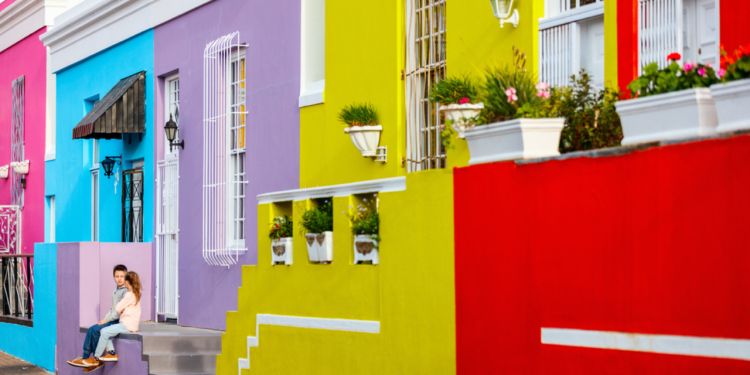
Cultural habits, interpersonal relations, security issues, etc. When you decide to travel or relocate to Cape Town, there are some important things you need to consider. First and foremost, we recommend reading our introductory article to Cape Town, which should allow you to approach this particular article with a good understanding of this exceptional city. We have also tried to summarise in a few lines the dos and don'ts, to avoid bad surprises. Below are our four major tips.
Prudence and vigilance
Without sinking into paranoia, questions concerning security are obviously at the centre of discussions when settling in South Africa, and in particular Cape Town. In fact, theft and violent-crime statistics are among the highest in the world. But this reality hides a significant nuance: while crime has tended to increase in recent years, for the moment this trend is limited to the disadvantaged neighbourhoods of the townships where the vast majority of daily dramas take place. Privileged neighbourhoods are not entirely spared, but as long as you respect the basic safety instructions explained everywhere, the risks decrease considerably.
Never leave your doors or windows open at night or when you leave home, and always lock them when leaving. It is imperative to choose a home equipped with the usual safety systems in this part of the world: an alarm, external radars, grilles or an electric barrier if necessary, a Safe Haven or room secured for the night, alarm-response service, etc.
These measures are taken seriously, even for those who have spent years in Cape Town. Without frightening you, beautiful neighbourhoods are more or less monitored continuously, with opportunistic thieves waiting for oversight or a drop in vigilance.
When travelling by car, drive with the windows closed while in the city, and stay alert at traffic lights at night. Beware of packages placed in the middle of the highway. A rock could be hidden under cardboard so that when you take the object at full speed, you have to stop the car, thus enabling a robbery to take place.
Beyond the Waterfront, do not walk in the streets at night, even in neighbourhoods where you may cycle during the day. Beware of Longstreet and Bree Street which have a negative reputation in the evening. Aside from personal vehicles, Uber or Taxify and My City Bus lines, other transport is not recommended.
As in many places around the world, avoid ostentation; do not wear jewellery or valuable accessories when walking outdoors. Do not travel the city with the originals of your identity papers but rather with photocopies, nor should you carry too much cash. Avoid talking on the phone while walking in the city.
In public places - malls, the beach, etc. - always keep an eye on your young children. Parents of teenagers, you will discover that your children do not have the same freedom of movement and independence in Cape Town as in Europe, for example. This is painfully felt by some families, so it is important to be aware before relocating.
When hiking - one of Cape Town's most popular leisure activities - make sure you never go out alone. Go with others, having reported your planned route to those around you, and take no money with you.
Finally, know that the rate of HIV infection in South Africa is among the highest in the world with almost 20% of the total population having the virus - a figure that goes up to 70% in some communities. (Source UNAIDS 2015): caution and the necessary precautions are absolutely necessary.
While it is, of course, important to know and understand these elements of Cape Town life and to respect safety advice, it is just as essential not to cultivate phobias or obsessions. By maintaining a good balance between security and enjoyment, you will be able to safely enjoy the many wonders that Cape Town, South Africa and the Southern Region have to offer!
Tolerance and distance
As we have pointed out in many of our articles on South Africa, the question of skin colour remains an omnipresent subject and a vital differentiating reality in South Africa, despite the establishment of a democratic regime for more than twenty-five years.
The majority of foreigners who come to settle in Cape Town are often shocked by the situation. Having just arrived, they hear about whites (English or Afrikaners), blacks (Xhosas, Zulu, etc.) and Coloured (mixed race ), and each of these "colours" directly implies certain economic, social and cultural stereotypes.
According to your personal history, your experience elsewhere in the world, your personal opinions, and political and intellectual ideals, this situation may affect you quite profoundly. You may be surprised when you arrive in Cape Town to find that the city itself is very "white" (for an African country) and that the communities are very compartmentalised. Unfortunately, you will probably find restaurants and supermarkets being condescending or even openly racist towards black people. You may also experience the anti-white racism of some black people. You could experience a form of ingratitude from black staff, where the injury of past (and present) injustices can lead to a sense of entitlement in recompense for the atrocities committed – all of this can be very complicated to manage.
In your professional environment you will discover the existence of the BEE - Black Economic Empowerment - a law of positive discrimination which requires recruiters to meet very high community quotas in companies, despite candidates not always demonstrating the skills required. Unfortunately, the quality of education has not followed the positive political will of economic rebalancing, meaning those in decision-making roles may be totally unsuited to their position. This situation is complicated to work with, both for employees dependent on the decision-makers and for their superiors, whose room for manoeuver is limited.
In general, many who come to live in Cape Town are shocked by the violent and blatant social inequalities that exist within the country. Some people throw themselves into humanitarian work or try to "compensate" generously by overpaying their staff, tolerating borderline behaviour, or permanently assisting their employees: this attitude, though understandable and honourable, unfortunately, does not solve the deep-seated problems of the country, and can even aggravate the situation.
That being said, benevolence, tolerance and the occasional step back are essential ingredients to avoiding disappointments and frustrations.
Adaptability and patience
As in many so-called "southern" countries, it is useless to try and enforce European notions of time, punctuality, or efficiency, responsiveness or profitability!
That's not to say these concepts don't exist in South Africa, especially in Cape Town - which is in large part structured by the Afrikaner and British communities - but their application and the way in which they are conceived in Cape Town is nevertheless very different. You will discover the famous "Now Now", a wave equivalent to the "Ahorita" in Mexico, which despite seeming to imply a sense of urgency or speed, is actually closer to, "We'll see when I have time. " Faced with these different cultural behaviours, adaptability and patience are essential!
Dynamism and curiosity
The richness of the city of Cape Town, South Africa and neighbouring countries is endless. Over the months - and even years! - Capetonians are lulled by the sound of the ocean, stop to watch the whales go by and simply "go with the flow", finding themselves content to relax and enjoy the incredible quality of life which Cape Town can offer. Organise your weekends to explore the regions surrounding Cape Town, plan trips for the school holidays, go out, enjoy – there's so much to discover!
We do our best to provide accurate and up to date information. However, if you have noticed any inaccuracies in this article, please let us know in the comments section below.






